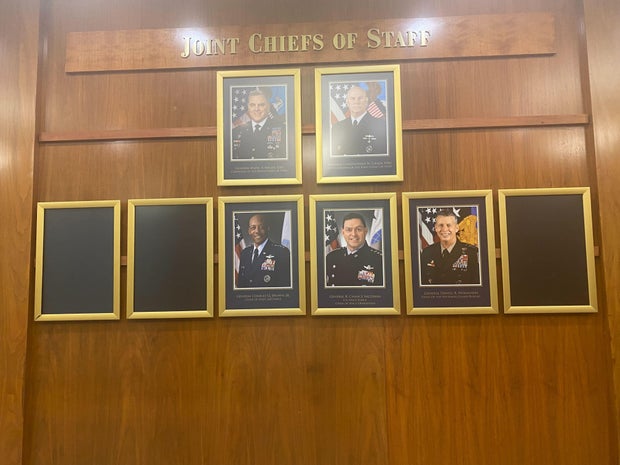The Navy on Monday joined the Army and Marine Corps in operating without Senate-confirmed military leaders because of Alabama Republican Sen. Tommy Tuberville’s hold on top military nominations.
Chief of Naval Operations Adm. Michael Gilday in a ceremony Monday morning relinquished his office as required by statute, and Adm. Lisa Franchetti took over in an acting capacity.
It’s the first time in the history of the Defense Department that three military services are without Senate-confirmed leaders, according to Defense Secretary Lloyd Austin.
“This is unprecedented. It is unnecessary and it is unsafe. And this sweeping hold is undermining America’s military readiness,” Austin said in remarks at Monday’s ceremony.
The vice service chiefs for the Navy, Army and Marine Corps are now leading each respective service in an acting capacity and continuing certain responsibilities of their current role. All three of the vice chiefs have been nominated by President Biden for the top positions, including Franchetti, who would be the first-ever female member of the Joint Chiefs of Staff if the Senate confirms her.
Eleanor Watson
Their nominations are part of the approximately 300 military nominations held up in the Senate.
Tuberville has put a blanket hold on top military nominations to protest the Defense Department’s policy that grants leave and reimburses travel costs for service members to seek reproductive care, including abortions. Tuberville has said he will keep the hold until the Defense Department rescinds the policy or Congress passes it into law.
The Defense Department estimates the hold could impact more than 650 military nominations by the end of the year. The hold affects those 650 officers plus the officers they’re replacing and filling in behind them and their families. Gen. Mark Milley told Congress in May he thinks 3,000 to 4,000 lives in total will be directly impacted by the end of the year if the hold continues.
Tuberville’s hold prevents the usual unanimous consent process for confirming nominations, but it does not stop the Senate from bringing each nomination to the floor for a vote. The Senate has so far declined to take this approach because of the amount of time it could take.
The Congressional Research Service estimates that if the Senate worked on only military nominations eight hours a day, it would take more than 80 days to confirm the nominations.
With neither the Pentagon or Tuberville budging, the impasse threatens to impact the nomination of Gen. C.Q. Brown as the next chairman of the Joint Chiefs of Staff – the nation’s top military officer – who would take office when Gen. Mark Milley’s term is up at the end of September.
Thanks for reading CBS NEWS.
Create your free account or log in
for more features.
